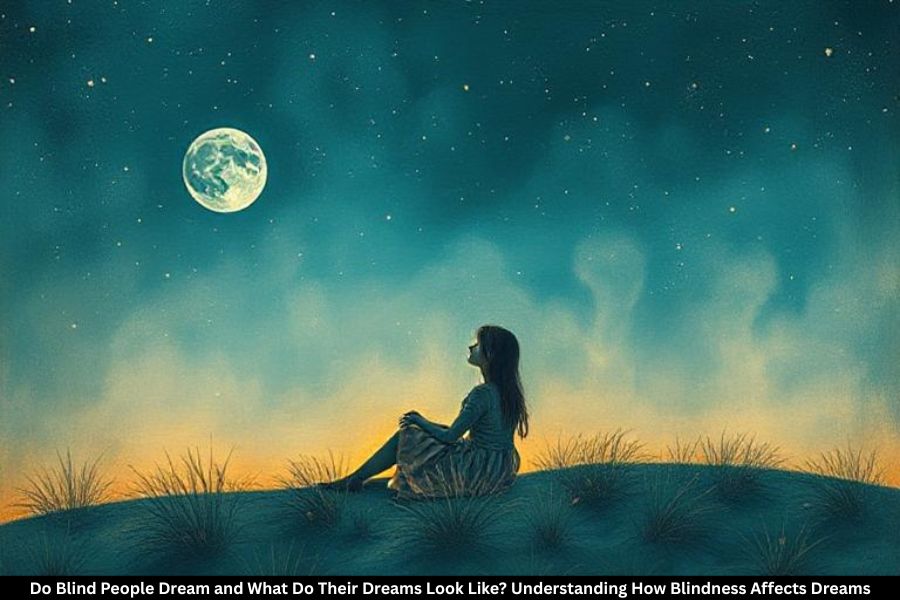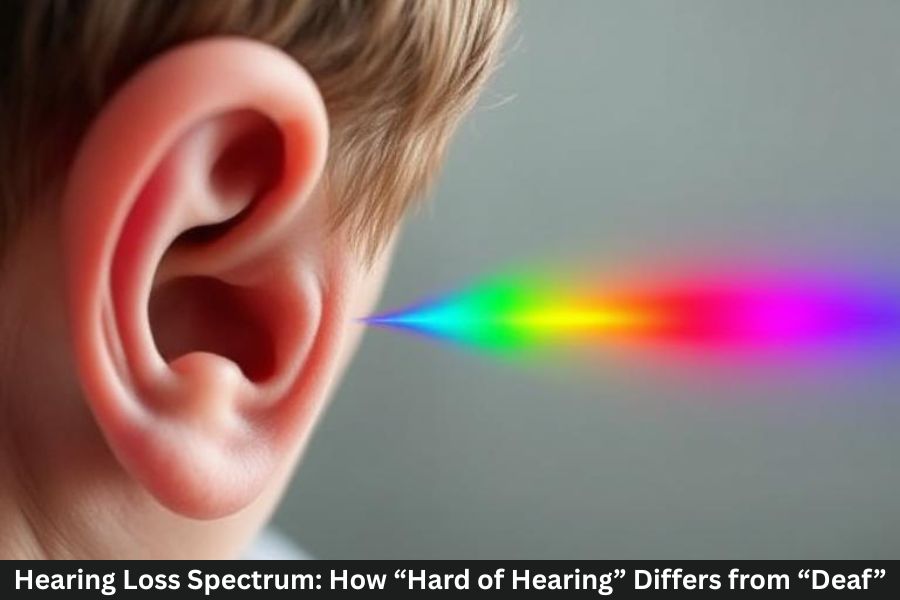The fascinating question of whether blind people dream and what those dreams look like has intrigued many for years. Dreams are a universal part of the human experience, yet they are often influenced by an individual’s senses, memories, and perception of the world. For people who are blind, the question takes on a unique dimension. Does the lack of sight alter how dreams are experienced or what they consist of? In this article, we’ll explore what we know about blind people and their dreams, how blindness affects their dreaming experiences, and what researchers have discovered.
Understanding Dreams: The Basics
What Are Dreams?
Before we dive into the specifics of blind people’s dreams, it’s essential to understand what dreams are. Dreams are mental experiences that occur during sleep, particularly during the rapid eye movement (REM) phase. They can include vivid imagery, sounds, and sensations, often reflecting thoughts, emotions, and memories from daily life.
How Do Sighted People Dream?
Sighted people often dream visually, with rich and colorful imagery, much like the world they experience when awake. Their dreams can involve seeing people, places, and objects, often shaped by their thoughts and emotions. However, these visuals aren’t always perfect representations of reality; dreams can be distorted or surreal.
Do Blind People Dream?
The Short Answer: Yes, Blind People Dream
Blind people do indeed dream, but the content of their dreams and the sensations they experience can differ based on whether they were born blind or lost their vision later in life. Dreams are a natural part of sleep for everyone, regardless of whether they can see. However, the way dreams manifest can be influenced by sensory experiences and perception.
Blind From Birth vs. Acquired Blindness
One of the most crucial distinctions is whether a person has been blind from birth or lost their vision later in life. People who were born blind have never had sight, so their dreams don’t contain visual images. In contrast, those who lose their sight later in life often retain visual elements in their dreams for a time, even if they can no longer perceive the world visually when awake.
What Do Blind People Dream About?
Dreams of Those Born Blind
For individuals who have been blind from birth, their dreams rely heavily on other senses like touch, sound, taste, and smell. Research suggests that these individuals have dreams that are primarily sensory in nature. For example, they might dream of:
- Sound: Conversations, music, or ambient noises that they experience during the day.
- Touch: Physical sensations like being hugged, walking, or interacting with objects through touch.
- Smell and Taste: Dreams that might involve familiar scents or tastes, such as the aroma of a favorite food.
These sensory experiences often take on more vivid and detailed roles in their dreams than they might for sighted individuals.
Dreams of Those Who Lost Sight Later in Life
People who lose their sight later in life may experience more “visual” dreams at first. These dreams can include images of familiar places, people, and even new things they encountered before losing their sight. However, over time, many individuals who lose their sight begin to experience a transition in their dreams, with visuals gradually being replaced by more sensory experiences, similar to those of individuals born blind.
The Role of Memory in Blind People’s Dreams
Memory and Dream Content
For blind individuals, memories play a significant role in shaping their dreams. Those born blind have a different set of memories to draw from, relying on tactile, auditory, and emotional experiences rather than visual ones. A person’s dream world is often a reflection of their most vivid and impactful memories.
- For someone born blind, their memories may include feelings of warmth or coolness, conversations with others, or the sensation of objects in their hands.
- For those who were sighted before going blind, memories of visual experiences can continue to populate their dreams, even if their waking experiences no longer involve sight.
How Does Blindness Affect Dreaming?
Sensory Substitution in Dreams
In the absence of sight, blind individuals rely more heavily on other senses to fill in the gap. The brain compensates for the lack of visual information by enhancing other sensory experiences in dreams. This is known as sensory substitution, where the brain uses non-visual sensory input to form a “mental image” of the world.
For example, the brain may use the sense of hearing to create a vivid sense of presence and environment in a dream. People born blind often dream in rich sensory detail, such as:
- Sounds of rain, footsteps, or voices
- Touch experiences, like feeling the texture of a surface or the sensation of warmth or cold
- Smells like the scent of a flower or a favorite food
The Emotional Element of Blind Dreams
Emotion plays a more dominant role in the dreams of blind individuals. Research indicates that emotions like fear, joy, and excitement are deeply intertwined with how dreams are experienced. In the case of people born blind, their dreams are highly emotional and often centered around interaction with others, as they may rely on social cues more than sighted people.
Scientific Research on Blind People’s Dreams
Studies on Blind Dreamers
Several studies have explored how blindness impacts dreaming. One such study, conducted by researchers at the University of Montreal, found that people who are born blind have dreams that are just as rich and vivid as those of sighted people. However, they are filled with auditory, tactile, and emotional content instead of visual stimuli.
Another key finding in research on blind people’s dreams is that their dreams are often more focused on social interactions and personal relationships. This is because touch, sound, and emotions are often key to communication for blind individuals.
The Impact of Blindness on REM Sleep
Blind people, like everyone else, experience REM (Rapid Eye Movement) sleep, the stage in which dreams are most vivid. Studies have shown that blind individuals spend just as much time in REM sleep as sighted people, indicating that their brain is still actively dreaming. The difference lies in the sensory content of their dreams.
Can Blind People Control Their Dreams?
Lucid Dreaming in Blind Individuals
Lucid dreaming refers to the ability to become aware of and control one’s dreams while they are happening. Research into lucid dreaming in blind individuals is still limited, but some studies suggest that blind people can experience lucid dreams, particularly those who lost their sight later in life. They may also use techniques such as verbalization or focusing on sensations to influence the course of their dreams.
How Dreams Help Blind People in Daily Life
Dreams as a Tool for Problem Solving
Interestingly, dreams may help blind individuals solve problems in ways that sighted people can also experience. The brain is constantly processing information, and during sleep, it may work through challenges or unresolved issues. For example, a blind person may dream of ways to navigate a new environment or find solutions to challenges they face.
Emotional Processing Through Dreams
Dreams are an important part of emotional processing. For blind individuals, dreams provide a space to work through feelings of fear, loneliness, or frustration, just as they do for sighted individuals.
Conclusion: The Complexity of Blind People’s Dreams
So, do blind people dream? Yes, they do—and their dreams are just as complex and meaningful as those of sighted individuals. The content of their dreams, however, is shaped by their sensory experiences, memories, and emotional responses. While their dreams may lack visual elements, they are rich in sound, touch, and feeling, and are just as vital in helping to process emotions and navigate life.




Your point of view caught my eye and was very interesting. Thanks. I have a question for you. https://accounts.binance.com/ru-UA/register-person?ref=JVDCDCK4
Thanks for sharing. I read many of your blog posts, cool, your blog is very good. https://accounts.binance.com/pl/register?ref=UM6SMJM3
Your point of view caught my eye and was very interesting. Thanks. I have a question for you.
Your point of view caught my eye and was very interesting. Thanks. I have a question for you. https://www.binance.com/tr/register?ref=MST5ZREF
Thank you for your sharing. I am worried that I lack creative ideas. It is your article that makes me full of hope. Thank you. But, I have a question, can you help me?
Can you be more specific about the content of your article? After reading it, I still have some doubts. Hope you can help me.
Can you be more specific about the content of your article? After reading it, I still have some doubts. Hope you can help me. https://www.binance.info/ph/register?ref=IU36GZC4
Can you be more specific about the content of your article? After reading it, I still have some doubts. Hope you can help me. https://accounts.binance.com/register-person?ref=IHJUI7TF